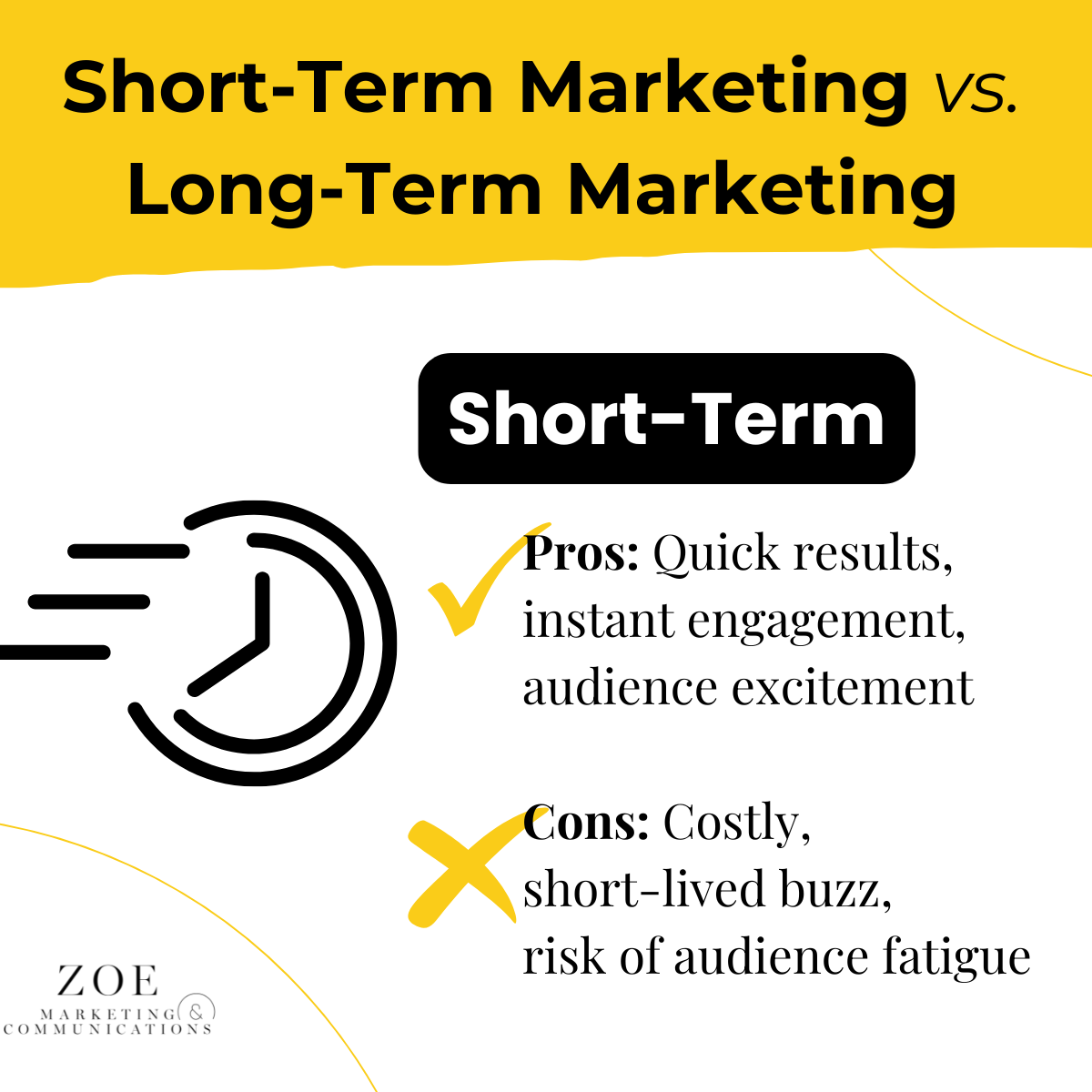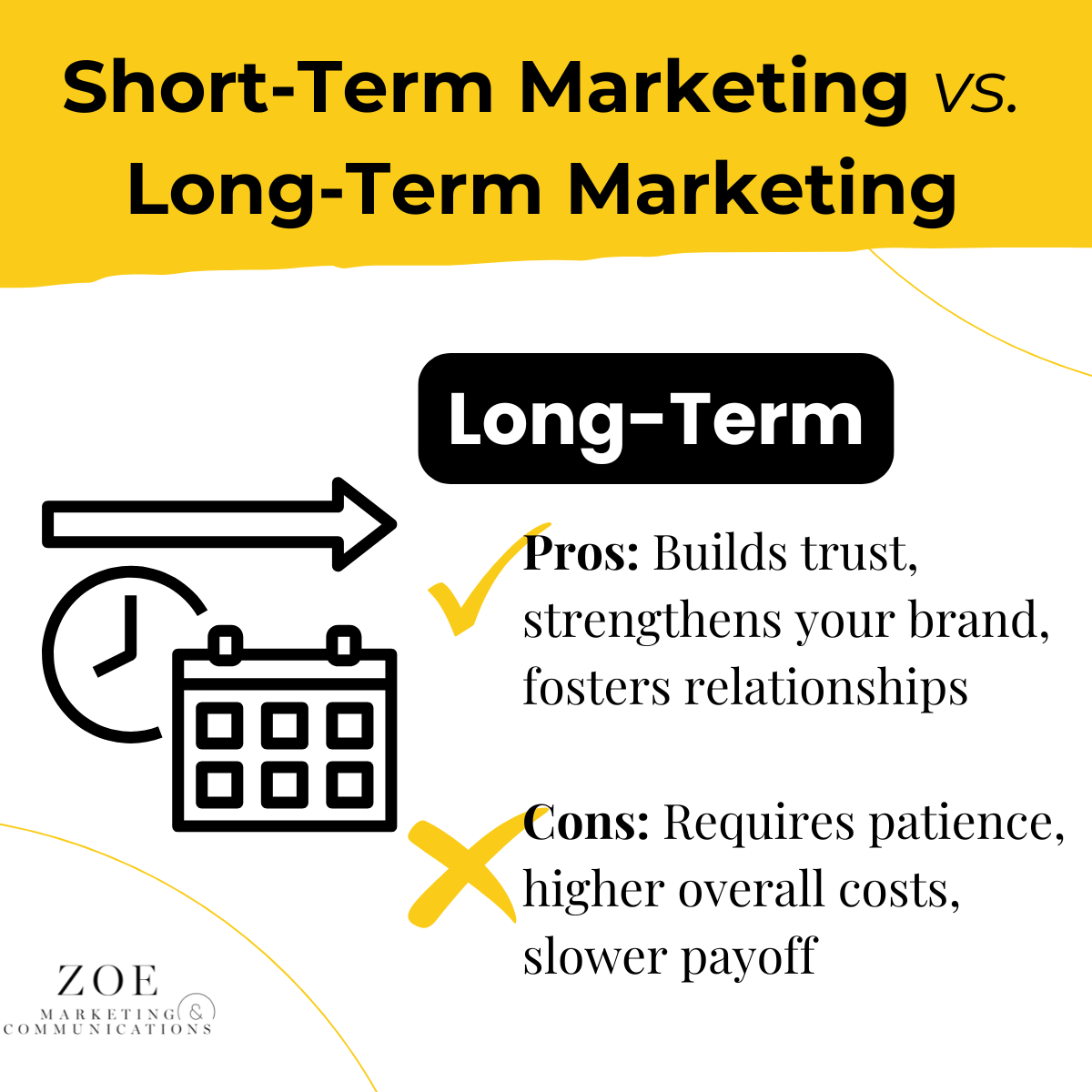Search for topics or resources
Enter your search below and hit enter or click the search icon.
February 12th, 2025 | 2 min. read
By Kim Kovelle

It’s tempting to think of marketing as a quick fix: plug-and-play, with immediate results. And sure, short-term tactics can drive those instant spikes. But for sustainable growth, long-term strategies are essential.
And, either way, it takes a clear strategy — which 42% of businesses admit they don't have!
So, which type of campaign should you run? Here at Zoe Marketing & Communications, we’ve seen the best results from a combination of both. They work together to boost visibility and engagement — and nurture steady growth over time.
Let’s break down what each looks like, their pros and cons, and how to strike the right balance.
Short-term marketing is a sprint for quick wins — think sales promotions or events. Long-term campaigns are marathons, focused on steady growth and trust.
Timelines may overlap, but the goals are different: fast impact vs. lasting brand growth.
Short-term campaigns focus on immediate results. If you want fast action, this approach delivers.

For sustainable growth and bigger business goals, long-term marketing delivers. It’s about building visibility, trust, and lasting customer relationships.

For many companies, a mix of short- and long-term marketing is ideal. It all depends on your goals. Here’s how blending both can work:
A school may need to fill seats for the upcoming year — a clear short-term goal. At the same time, it wants to build long-term awareness about its unique educational philosophy to attract future families.
Tourism is similar. A visitor bureau might run seasonal short-term ads for winter sports or summer events while also promoting the area year-round to inspire future visits.
Short- and long-term marketing serve different purposes, but both are key to success. In this blog, you explored how long each lasts, their pros and cons, and why a mix can be a smart strategy.
Setting clear goals and realistic expectations is critical. If you’re ready to start, we can help. Talk to Zoe Marketing & Communications about creating campaigns tailored to your needs — whether short, long or a combination.
Still exploring? Check out these helpful reads:
As Zoe Marketing & Communications’ content manager, Kim Kovelle brings over 20 years of writing and editing experience in metro Detroit. She has strong roots in community journalism and a knack for making complicated topics make more sense.
Topics:
